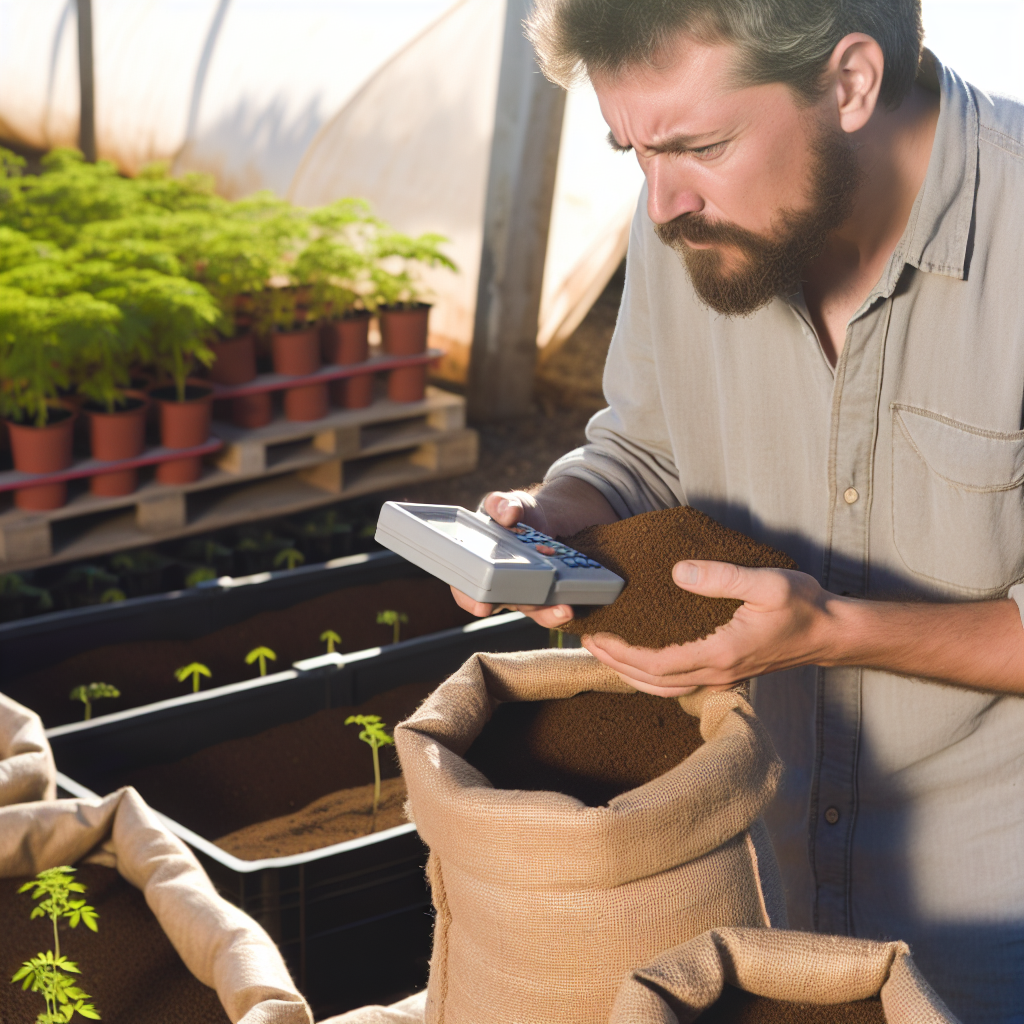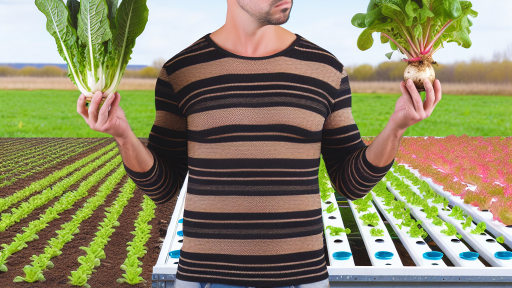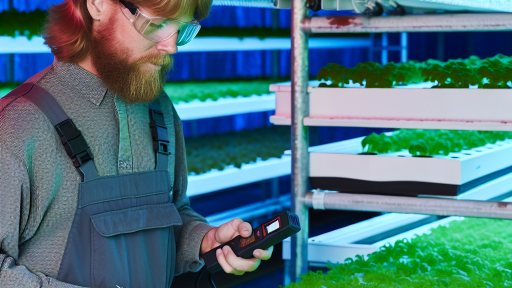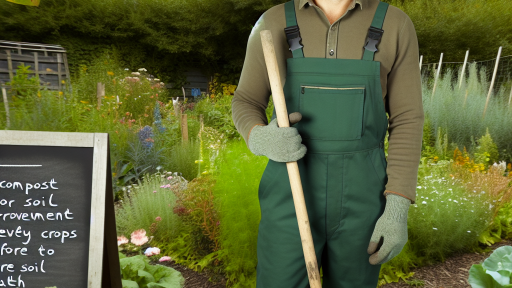Introduction to Container Farming and Its Benefits
Container farming offers a unique method for growing plants in limited spaces.
This approach is ideal for urban settings where land is scarce.
Moreover, it allows for control over environmental factors.
Container farming reduces the risk of soil-borne diseases significantly.
By using a controlled medium, growers can focus on plant health.
Additionally, it provides flexibility in plant selection and crop rotation.
Being able to move containers makes gardening easier and more accessible.
Container farming promotes resource conservation through efficient water use.
It can effectively utilize leftover materials, such as pallets or wooden crates.
Furthermore, this method supports year-round growing regardless of the climate.
Benefits of Container Farming
Container farming offers several advantages that appeal to diverse growers.
It requires less initial investment compared to traditional farming.
Additionally, container farms can produce food closer to consumers.
This reduces transportation costs and environmental footprints.
Urban farms can enhance food security in metropolitan areas.
Transform Your Agribusiness
Unlock your farm's potential with expert advice tailored to your needs. Get actionable steps that drive real results.
Get StartedMoreover, they create opportunities for community engagement and education.
Environmental Impact
Container farming significantly lowers the usage of pesticides and fertilizers.
It enables sustainable practices that contribute to healthy ecosystems.
This approach supports local biodiversity by promoting various plant species.
Additionally, container farms can mitigate urban heat island effects.
They can also improve air quality and enhance urban aesthetics.
Perfect for Beginners
Container farming is an excellent starting point for novice gardeners.
It simplifies the gardening process and makes it less intimidating.
Plus, it allows for quick experimentation with different plants and arrangements.
Those new to gardening can observe results faster and learn effectively.
Understanding Soil Composition: Key Components of Soil Mixtures
What Makes Up Soil?
Soyl consists of various components that influence plant growth.
These components include minerals, organic matter, water, and air.
Understanding each element is crucial for achieving optimal container farming results.
Key Components of Soil
Minerals
Minerals are the building blocks of soil.
They originate from the weathering of rocks over time.
Common minerals include sand, silt, and clay.
Each mineral type contributes different properties to soil structure.
Organic Matter
Organic matter enhances soil fertility significantly.
It consists of decomposed plant and animal materials.
Additionally, organic matter retains moisture and provides nutrients.
Adding compost is an excellent way to boost organic matter content.
Water
Water is essential for all plant life.
It helps transport nutrients from the soil to plants.
Moreover, water levels influence soil aeration and root development.
Showcase Your Farming Business
Publish your professional farming services profile on our blog for a one-time fee of $200 and reach a dedicated audience of farmers and agribusiness owners.
Publish Your ProfileAir
Soil contains air pockets that are vital for root respiration.
The balance of air and moisture ensures healthy soil environments.
Excessive compaction can lead to poor air circulation.
Soil Texture and Its Impact
Soil texture affects the availability of water and nutrients.
Soil can be classified as sandy, loamy, or clayey.
Sandy soils drain quickly but may struggle to retain nutrients.
Conversely, clayey soils retain moisture, which can lead to poor drainage.
Loamy soils are ideal, combining the benefits of all textures.
Creating the Right Soil Mixture
Creating a custom soil mixture enhances container farming success.
Mixing different soil types allows for better drainage and nutrient retention.
Consider adding perlite or vermiculite to improve aeration.
Testing Soil Composition
Testing your soil mixture is essential for optimal plant growth.
Soil testing kits can help determine pH levels and nutrient availability.
Regular testing allows you to adjust your soil composition as needed.
Importance of Soil Amendments
Soil amendments can improve your soil’s quality and fertility.
Additives like compost, peat moss, and lime can enhance performance.
Ensure to incorporate amendments evenly for best results.
Best Soil Mixtures for Vegetables
Importance of Quality Soil Mixes
Quality soil is essential for container farming success.
It directly influences plant health and growth rates.
Using the right soil mixture can prevent common problems.
Furthermore, it enhances the nutrient availability for your plants.
Essential Components of Soil Mixes
A successful soil mixture contains several key elements.
First, it should include organic matter.
Organic matter improves soil structure and water retention.
Next, include a well-draining material, like perlite or vermiculite.
Good drainage prevents root rot in container plants.
Finally, consider incorporating compost for enhanced nutrients.
Popular Soil Mixtures for Vegetables
Several soil mixtures work well for growing vegetables in containers.
One popular choice is a mix of peat moss, perlite, and compost.
This combination provides a great balance of nutrients and drainage.
Another option is a blend of coconut coir, sand, and worm castings.
This mixture improves aeration and moisture retention.
Customizing Soil Mixes for Specific Vegetables
Different vegetables may require tailored soil mixtures.
For instance, tomatoes thrive in a slightly acidic soil.
A mix of peat moss, compost, and pine bark can work well.
Leafy greens, on the other hand, prefer a nitrogen-rich mix.
A combination of compost, well-rotted manure, and soil works effectively.
Maintaining Soil Quality Over Time
Regularly monitoring and maintaining soil quality is crucial.
Add organic fertilizers to replenish nutrients as plants grow.
Consider rotating crops to maintain soil health.
Showcase Your Farming Business
Publish your professional farming services profile on our blog for a one-time fee of $200 and reach a dedicated audience of farmers and agribusiness owners.
Publish Your ProfileAdditionally, refresh the top layer of soil annually.
This practice ensures your plants have the best growing conditions.
Delve into the Subject: Organic Practices For Urban Gardeners
Organic vs. Synthetic Soil Mixtures: Pros and Cons
Understanding Organic Soil Mixtures
Organic soil mixtures use natural materials like compost and peat moss.
These ingredients improve soil structure and provide essential nutrients.
Organic mixtures enhance moisture retention, promoting healthy plant growth.
Furthermore, they support beneficial microorganisms in the soil.
However, they may be more expensive than synthetic alternatives.
Benefits of Organic Soil Mixtures
- Support sustainable agriculture practices.
- Reduce the risk of crop diseases through enhanced soil health.
- Promote biodiversity in container farming ecosystems.
Challenges of Organic Soil Mixtures
- Organic materials may break down more quickly, requiring frequent replenishment.
- Variable nutrient content can make it difficult to predict plant needs.
Exploring Synthetic Soil Mixtures
Synthetic soil mixtures often contain manufactured components like perlite and vermiculite.
They provide uniformity in texture and nutrient distribution.
Additionally, synthetic mixtures can be tailored for specific plant types.
Benefits of Synthetic Soil Mixtures
- Predictable nutrient levels allow for precise fertilizer applications.
- Reduced risk of pests and diseases compared to organic mixtures.
- Often less expensive and more readily available than organic options.
Challenges of Synthetic Soil Mixtures
- Limited biodiversity, as synthetic mixtures lack organic matter.
- They can lead to soil compaction over time, affecting root health.
- Potential environmental impact due to the chemicals in some synthetic products.
Choosing the Right Mixture for Container Farming
Your choice between organic and synthetic soil mixtures depends on your farming goals.
Consider factors such as cost, plant types, and sustainability preferences.
Your decision will ultimately impact plant health and productivity.
Uncover the Details: Pollinator-Friendly Edible Landscapes
Common Mistakes in Soil Mixture Preparation for Containers
Ignoring Drainage Requirements
Drainage is critical for container plants.
Many gardeners overlook this vital factor.
Using compacted soil can lead to root rot.
To avoid this, incorporate perlite or pumice.
These materials enhance drainage effectively.
Neglecting Nutrient Balance
A balanced nutrient profile supports plant health.
Some mixtures lack essential components like nitrogen.
This deficiency can stunt growth significantly.
Consider using fertilizers tailored for container plants.
Regularly test soil and amend as needed.
Over-Complicating Soil Mixtures
Simplicity is often key to effective soil mixtures.
Using too many components can confuse the ratios.
This confusion leads to poor plant performance.
A simple mix of compost, peat, and perlite works well.
Focus on quality over quantity when mixing ingredients.
Failing to Sterilize Ingredients
Unsterilized materials can introduce pests and diseases.
Many gardeners ignore this important step.
Always sterilize soil and organic matter before use.
Methods include baking or using a microwave.
Taking this precaution will protect your plants.
Not Adjusting for Specific Plant Needs
Different plants require different soil mixtures.
Failing to account for these needs can hinder growth.
Certain herbs thrive in fast-draining soil.
Conversely, leafy greens prefer a more moisture-retentive mix.
Be sure to research each plant’s requirements.
Showcase Your Farming Business
Publish your professional farming services profile on our blog for a one-time fee of $200 and reach a dedicated audience of farmers and agribusiness owners.
Publish Your ProfileOverwatering Container Plants
Overwatering can lead to poor soil health.
It’s important to monitor moisture levels carefully.
Using a moisture meter can simplify this task.
Remember, container plants often need less water.
Always allow excess water to drain away readily.
Ignoring Temperature Effects on Soil
Soil temperature significantly impacts plant growth.
Using cold soil can shock young plants.
Warm weather crops thrive in higher temperatures.
Consider pre-warming soil in containers before planting.
This small adjustment can enhance germination rates.
You Might Also Like: Sustainable Water Practices for Heritage Gardens

Enhancing Soil Health: Importance of Amendments and Additives
Understanding Soil Amendments
Soyl amendments improve soil structure and fertility.
They create a better environment for root growth.
Additionally, they enhance water retention and drainage.
The Role of Organic Additives
Organic additives enrich soil with nutrients.
Compost is a popular choice for boosting soil health.
Worm castings also provide essential minerals and microorganisms.
Importance of pH Level Adjustments
Soil pH affects nutrient availability for plants.
Amendments can help adjust pH to optimal levels.
For example, lime raises pH, while sulfur lowers it.
Utilizing Mineral Additives
Mineral additives supply essential trace elements.
Gypsum improves soil structure and drainage.
Rock phosphate slowly releases phosphorus into the soil.
Impact of Mulching
Mulching retains moisture and suppresses weeds.
Organic mulches add nutrients as they decompose.
Additionally, they provide habitat for beneficial organisms.
Selecting the Right Mixture for Container Farming
Choose a mixture that suits the specific plants.
A well-balanced mix promotes healthy plant growth.
Consider using a potting mix that includes vermiculite or perlite.
Soil Health Enhancements
Improving soil health through amendments leads to thriving plants.
Healthy soil results in higher yields and vibrant gardens.
Investing time in soil health pays off with successful container farming.
See Related Content: Companion Planting with Heirloom Crops
Water Retention Techniques: Selecting the Right Soil Mix
Importance of Water Retention
Water retention is crucial for the success of container farming.
It ensures your plants receive adequate moisture.
Failing to manage water properly can stunt plant growth.
Moreover, excessive water loss may lead to wilting.
Understanding Soil Composition
Different soil components affect water retention rates.
For instance, clay holds water well but drains poorly.
Sand, on the other hand, drains quickly but retains little water.
Showcase Your Farming Business
Publish your professional farming services profile on our blog for a one-time fee of $200 and reach a dedicated audience of farmers and agribusiness owners.
Publish Your ProfileIdeally, a balanced mix improves overall performance.
Selecting the Right Soil Mix
Choose a high-quality potting mix for container farming.
Look for mixes that combine peat moss, vermiculite, and perlite.
These components enhance drainage and moisture retention.
Avoid garden soil as it compacts too easily.
Water-Retentive Ingredients
Consider adding coconut coir to your soil mix.
Coconut coir retains moisture effectively and improves aeration.
Additionally, you may use hydrogel crystals.
These crystals absorb and release water as needed.
Regular Monitoring and Adjustment
Consistently check moisture levels in your containers.
Adjust your watering schedule based on weather conditions.
Remember, indoor and outdoor containers may require different care.
Use a moisture meter for precise readings.
Utilizing Mulch for Extra Protection
Applying a layer of mulch can significantly reduce evaporation.
Organic options like shredded leaves or straw work well.
Mulch also suppresses weeds, allowing more water for plants.
Best Practices for Container Farming
Incorporate a well-balanced soil mix for optimal success.
Regularly evaluate moisture needs of your plants.
Consider using mulch and water-retentive additives.
By implementing these techniques, you will enhance your container farming experience.
Case Studies: Successful Container Farming with Optimal Soil Mixtures
Introduction to Successful Container Farming
Container farming is revolutionizing urban agriculture.
It allows individuals to grow crops in limited spaces.
Focusing on soil mixtures enhances plant health and yield.
Case Study: Urban Greens
Urban Greens successfully utilizes a specific soil mixture for herbs.
Their blend includes coconut coir, perlite, and organic compost.
This combination improves water retention and drainage efficiency.
As a result, their basil and parsley thrive throughout the year.
Case Study: Green Thumb Innovations
Green Thumb Innovations focuses on a soilless medium for vegetables.
Their approach features a mix of peat moss and vermiculite.
This mixture optimizes nutrient absorption and aeration.
The outcome is a high yield of tomatoes and peppers in each cycle.
Case Study: Sustainable Harvest Farms
Sustainable Harvest Farms employs a nutrient-rich organic mix.
They use biochar, worm castings, and composted leaves.
This method enhances microbial activity in the soil.
Their lettuce and spinach crops show remarkable growth and flavor.
Analyzing Soil Mixtures for Different Crops
Diverse crops require distinct soil formulations for success.
Herbs often need well-draining and lightweight mixes.
Fruiting plants thrive in nutrient-dense soil environments.
Leafy greens benefit from high organic matter content.
Best Practices for Optimal Soil Mixtures
Regularly testing soil pH enhances nutrient availability.
Showcase Your Farming Business
Publish your professional farming services profile on our blog for a one-time fee of $200 and reach a dedicated audience of farmers and agribusiness owners.
Publish Your ProfileIncorporating organic matter fosters soil health over time.
Monitoring moisture levels ensures plants receive adequate hydration.
Finally, adjusting soil mixtures based on crop needs is vital.
Additional Resources
Starting a Flower Farm on a Shoestring Budget — Sierra Flower Farm




